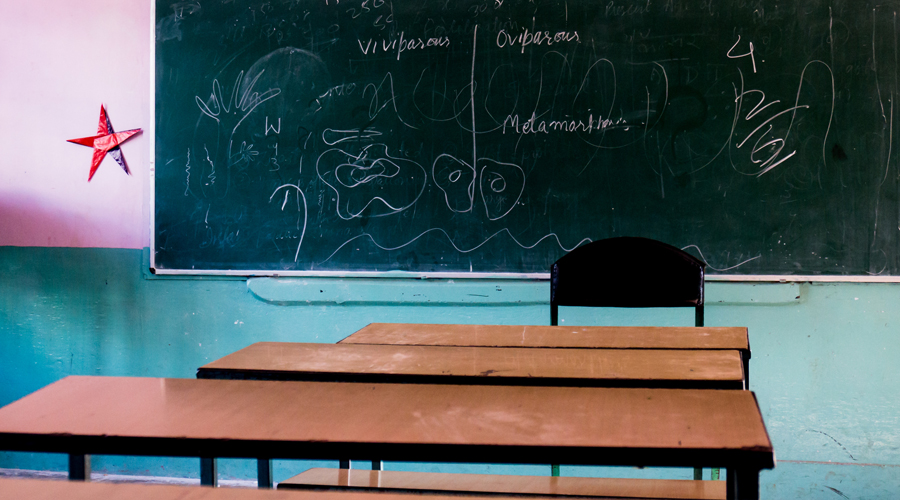Blended learning will become the norm in years to come despite the reopening of schools, prompting many private schools to invest in setting up interactive, smart classrooms and customised apps.
As part of blended learning, lectures delivered at classrooms are streamed live so students at home can watch them.
Chief minister Mamata Banerjee had on Monday announced that government- run and government-aided schools could reopen for Classes IX to XII from November 16.
A number of private schools had said they would watch the situation — the case count has been increasing since the Puja — before deciding whether to call students back to the campus.
A senior official of the state school education department said they had prepared a draft of the guidelines for reopening of schools. It is partly based on what was rolled out in February, when schools had reopened briefly for Classes IX to XII.
“Some new elements will be incorporated. We are waiting for Nabanna’s approval before sending it to schools,” the official said.
Some private schools are setting up classrooms in a manner that both in-person and remote learning can continue simultaneously. They are doing this because a section of students will continue attending online classes to avoid contracting Covid.
Teachers fear on-campus classes might be frequently interrupted because of the pandemic. And if a number of students or teachers of a school catch the virus around the same time, the campus might have to be shut down for several days.
Loreto Convent, Entally, has set up eight classrooms with projectors. Teachers can connect their devices to the projectors and take classes.
MP Birla Foundation Higher Secondary School has set up 10 interactive classrooms on a “trial basis” during the Puja break, spending about Rs 65,000 on each room.
Every interactive classroom has cameras, a laptop and a projector. The lectures will be streamed live.
South City International School has recently subscribed to a learning app that will enable students to log into the class. “Students’ entry will be regulated. Only registered users will be allowed to log in,” the principal, John Bagul, said.
The app will also spare the teachers the hassle of recording attendance because that will be automatically done.
“Hybrid classes are here to stay and the management has been farsighted to adapt to these changes. In 2009, we gave laptops to our teachers. We have to think about moving forward,” said Bagul.
Even after the schools reopen, parents have to sign consent forms to let their children attend in-person classes. “We will not be able to bring back all the students together. They will come in batches. So we have to think of ways to conduct classes,” said Jessica Gomes Surana, principal of Loreto Convent, Entally.
School heads said simultaneous classes would solve the problem of shortage of teachers.
“We cannot ask the same teacher who has taken five hours of class at school to do so again online. So, we have to broadcast lectures being delivered in class for the students who are turning up,” said S.K. Singh, general manager of MP Birla Foundation Higher Secondary School.
“We do not know how the next year will be and so we have taken this step so that children do not suffer.”
Some schools in the city had made this investment early and made use of technology when campuses reopened in February.
“We have equipped all our classrooms (with smart learning tools). Earlier, if a student was absent, he or she missed the class, But now, with this (smart learning) facility, one can attend class from home,” said Bratati Bhattacharyya, secretary general of Shri Shikshayatan School.
